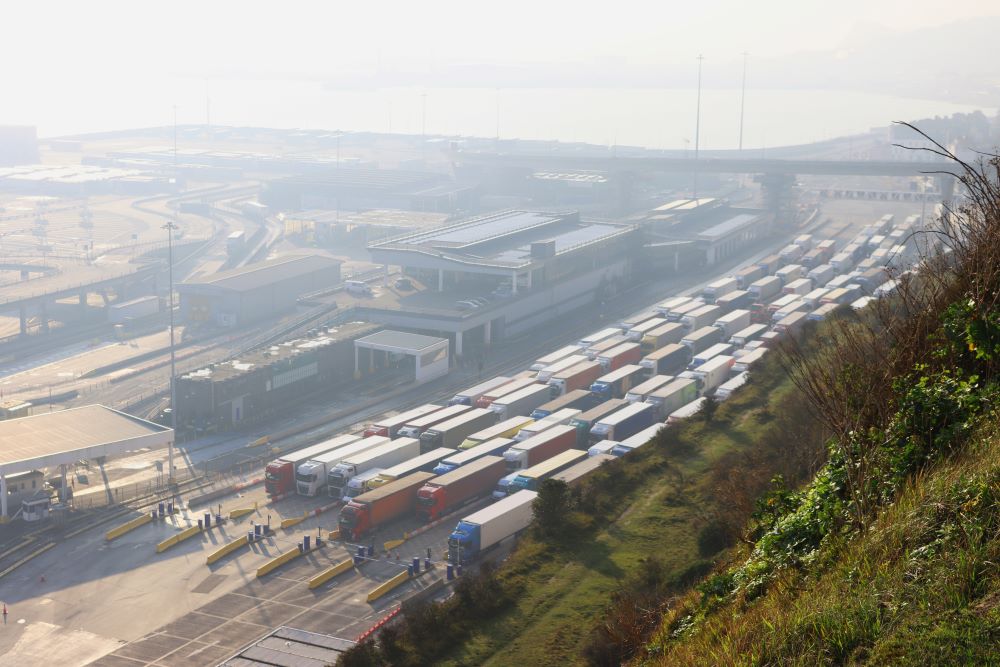
The government has said that setting up priority lanes for perishable items travelling through the Port of Dover is not a “realistic option”.
Environment secretary George Eustice told BBC Breakfast today (11 April) that setting up such an operation at such a scale before Easter would be difficult.
Loss of quality
Queues have been growing at the main crossing point to Calais, with Operation Brock in place to regulate traffic entering the port.
Lorry drivers carrying perishable foods have been asking to be prioritised because delays were leading to their loads losing quality and value, the FT reports.
Losing business
Nick Allen, chief executive of the British Meat Processors Association (BMPA), told the BBC that delays of 24 hours or more meant that the UK was losing business to other countries.
“We are told to expect disruption well into next week. With Easter weekend approaching and a very busy time for exporting fresh meat, this is really bad timing,” he said.
Graham Eardley, director of Lockerbie-based haulier Eardley International, which takes fresh meat from the UK into continental Europe, said he was losing £800 per truck.
‘Right direction’
Cabinet minister Eustice acknowledge that there had been a “sharp increase in traffic” around the port, laying some of the blame on the beginning of the Easter holidays and the suspension of routes usually serviced by P&O Ferries.
He said that the issue was “temporary”, however.
"My understanding is that things are now moving in the right direction, so this was a temporary problem caused by a surge of traffic around the commencement of the Easter period," he said.
Still no P&O
According to the FT, the Goods Vehicle Movement Service (GVMS), which allows hauliers to pre-submit customs declarations before entering or leaving Britain, suffered outages last week, exacerbating problems.
HMRC said on Friday that the issues had been resolved but that contingency measures would remain in place until midday today when the GVMS system would be fully restored.
‘Brexit scenarios’
The head of the British Ports Association said that the situation with P&O Ferries was a factor in the delays, but that Brexit was also partly to blame.
Chief executive Richard Ballantyne told the Independent: “P&O Ferries is out of service at the moment, which is probably the main cause of all the congestion – coupled with one or two other little incidents, and other Brexit scenarios.”
Hauliers have said it has been taking 15 to 20 minutes for each driver to clear checks needed since full customs controls came into force at the beginning of January.



